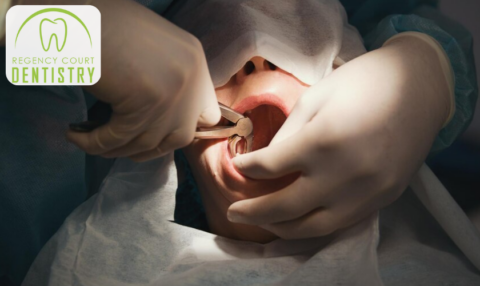Preparing for Wisdom Teeth Removal Aspendale: Vital Guidance for Clients
Discovering Various Sedation Options for a Comfortable Knowledge Teeth Removal Experience
The use of sedation throughout such procedures has actually become increasingly usual to relieve anxiety and discomfort. With a variety of sedation options offered, from neighborhood anesthesia to general anesthetic, each method supplies differing levels of relaxation and discomfort control.
Neighborhood Anesthesia
Neighborhood anesthetic is a frequently used technique for numbing details areas of the mouth throughout wisdom teeth removal treatments. By administering an anesthetic, such as lidocaine, a dental practitioner can make sure that the individual remains pain-free and comfortable throughout the removal procedure. Local anesthesia jobs by momentarily obstructing the nerves in the mouth, stopping them from sending out discomfort signals to the mind. This enables the dental practitioner to carry out the removal without triggering any kind of discomfort to the individual.
Among the key benefits of local anesthesia is its targeted numbing result, which indicates that only the specific area being dealt with is influenced. This localized technique reduces the danger of systemic adverse effects and enables a quicker healing post-procedure. Furthermore, regional anesthesia is considered to be a risk-free and regular technique in dentistry, with minimal threats involved when administered by a qualified expert.
Laughing Gas
Nitrous oxide, generally recognized as laughing gas, is a form of sedation usually made use of in dentistry to aid people relax throughout oral treatments. This sedation option enables the individual to continue to be mindful and receptive throughout the procedure while feeling at ease and comfy.
Furthermore, nitrous oxide is known for its rapid healing time. When the mask is removed, the effects of the gas subside swiftly, permitting patients to resume their normal activities without lingering sedative results. This makes nitrous oxide a practical selection for those who require to drive themselves home after the oral appointment. Additionally, laughing gas is appropriate for individuals of all ages, making it a versatile sedation option for wisdom teeth extractions and other oral procedures.
Dental Sedation
Dental sedation, a pharmacological method employed in dental care, includes the administration of sedative medicines by mouth to cause a relaxed state during oral procedures. This type of sedation is frequently used for patients going through knowledge teeth removal to minimize anxiousness and pain. The drugs recommended for dental sedation belong to a course of medications called benzodiazepines, which have sedative, anxiolytic, and amnesic properties. Commonly, the person takes the prescribed drug before the procedure, enabling adequate time for the sedative impacts to hold.
Unlike intravenous sedation, dental sedation does not require needles or injections, making it an extra comfy choice for people with a worry of needles. Furthermore, dental sedation is thought about secure and efficient when administered by trained oral experts.
IV Sedation
Administered intravenously by trained physician, IV sedation is a powerful approach made use of to cause a controlled state of deep relaxation and unconsciousness throughout dental procedures. Unlike dental sedation, which can be unforeseeable in its impacts, IV sedation enables exact control over the level of sedation, making it a suitable choice for complicated treatments like wisdom teeth removals.
During IV sedation, a sedative drug is delivered straight into the bloodstream via a capillary, permitting it to work quickly and effectively. This technique ensures that the patient remains comfy and uninformed of the treatment while still keeping vital functions such as breathing and heart rate.
Among the main benefits of IV sedation is its capacity to give a much deeper level of sedation contrasted to other techniques, making it specifically suitable for clients with high levels of anxiety or those undertaking comprehensive dental work (wisdom teeth removal aspendale). Furthermore, the impacts of IV sedation generally subside progressively after the treatment, decreasing the chance of grogginess or lingering negative effects. In general, IV sedation provides a secure and effective choice for guaranteeing a comfy and hassle-free experience during knowledge teeth extraction

General Anesthesia
Having actually gone over the benefits of IV sedation for knowledge teeth extraction, the utilization of basic anesthetic supplies an alternate choice for people calling for a much deeper level of unfamiliarity during oral procedures. General anesthesia induces a regulated state useful reference of unconsciousness, making sure the individual really feels no discomfort or pain throughout the removal process. This method is specifically useful for individuals with severe dental anxiousness, facility medical requirements, or those undertaking multiple extractions simultaneously.
General anesthetic is carried out by a trained anesthesiologist who very closely checks the client's vital signs throughout the procedure. It entails using intravenous medications website here or breathed in gases to induce a state of unfamiliarity. While under general anesthetic, the client will certainly not recognize the surgical treatment, experience any type of pain, or have any kind of recollection of the procedure afterward.
Although general anesthesia is secure when administered by qualified professionals, it brings a slightly greater threat contrasted to various other sedation alternatives - wisdom teeth removal aspendale. Clients taking into consideration basic anesthesia for wisdom teeth removal should review the potential risks and benefits with their dental practitioner or dental surgeon to make an informed decision based upon their specific demands and clinical background

Conclusion
In conclusion, various sedation choices are available to guarantee a comfy knowledge teeth removal experience. Oral sedation and IV sedation offer much deeper levels of relaxation, depending on the person's requirements.
Nitrous oxide is suitable for people of all ages, making it a flexible sedation alternative for wisdom teeth removals and various other dental treatments.
